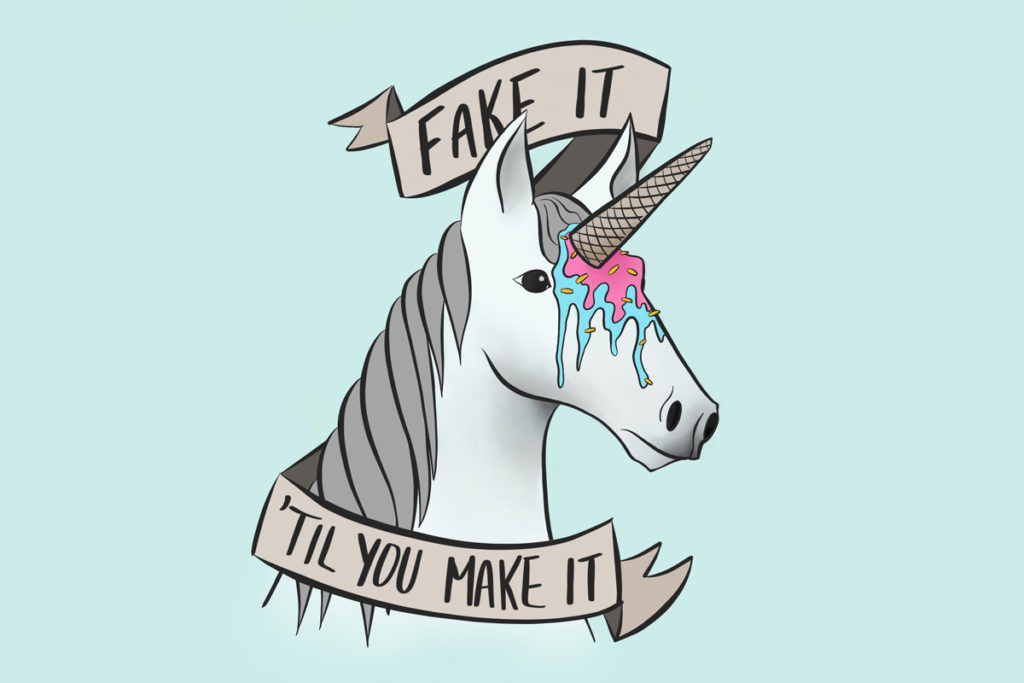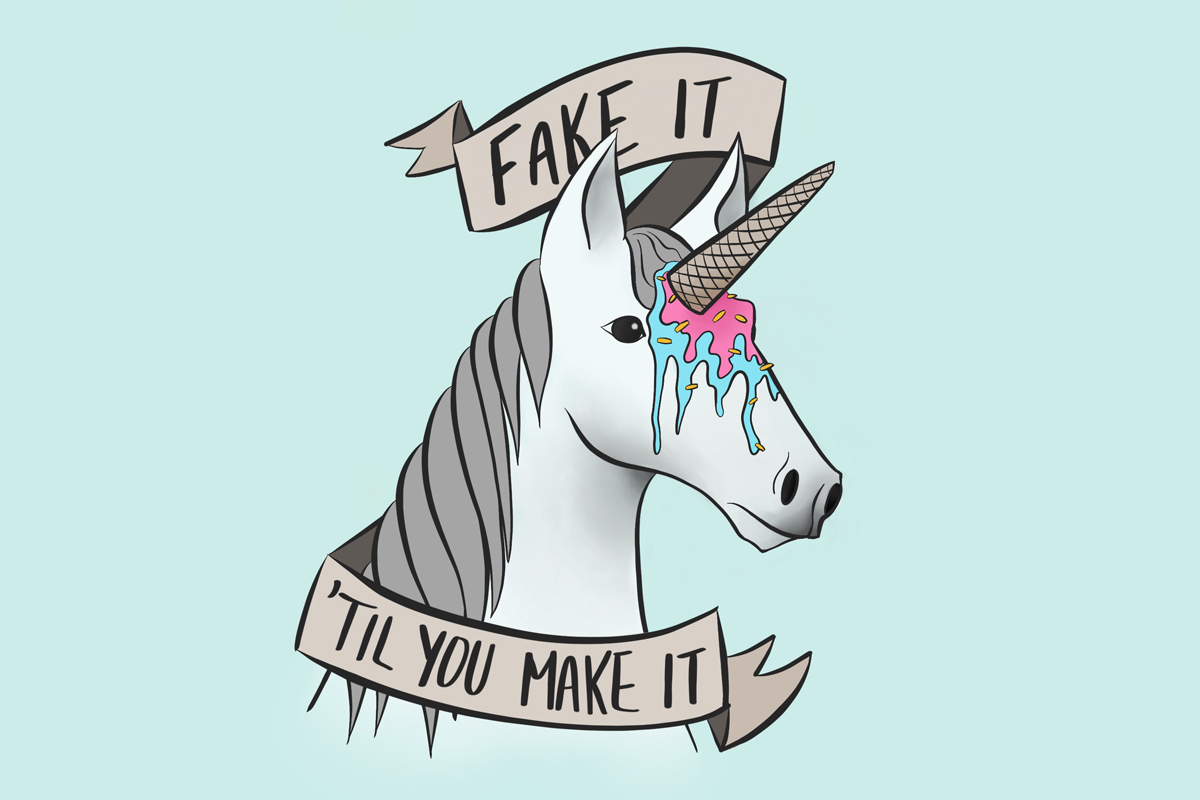Prior to joining Atomic, I was thrilled to read about the six values Atoms live by, with the notion of acting transparently resonating the loudest. This was a relief, since one of the previous pieces of career advice I’d received was to “fake it ’til you make it.” Fortunately, I quickly learned that this was a poor suggestion.

“Fake it ’til you make it” is not a new expression. I’m sure most have heard it, and plenty have said it. The objective is to fake confidence, so that eventually you will become confident. While the intent is good, my personal experiences with the concept have never turned out well, for several reasons.
Pretending is Exhausting
Some would say “faking it” is a form of lying. Even if you don’t consider faking a little confidence to be a moral issue, you might experience the exhaustion that comes from pretending to be something or someone you are not. It can be anxiety-inducing to try to keep track of where you said your confidence was with whom. See? Even that sentence was exhausting.
Instead of pretending to be confident when you are not, I suggest taking a moment to reflect on the skills and knowledge where you do have confidence. Doing this before client presentations has proven to be effective for me. I look at it as giving myself a little pep talk before a big performance.
No One Will Teach You if They Think You Know Everything
If you are constantly pretending that you understand what you don’t, you’ll have fewer opportunities to learn. People won’t go out of their way to share their knowledge with you if they think you already know it all.
Instead of falsely nodding along when someone asks if you’re familiar with a JavaScript library you’ve never heard of, be honest. I’ve found embracing “I don’t know” to be both liberating and educational.
When you can comfortably admit that you don’t know about a certain subject but would like to learn more, people are often eager to share their knowledge with you. The great thing about this is that because of that knowledge share, you soon will be confident in the subject at hand—you won’t need to fake it!
Authenticity is Valuable
Studies have suggested that people highly value authenticity when they purchase goods and services. This makes sense. Simply put, people don’t want to be lied to. They want to trust those who surround them, and that includes the people in their professional relationships. If that trust is broken, it can take eons to rebuild. So instead of pretending you’re a CSS wizard, tell the truth.
If you tell the truth and offer to either invest the time in becoming a CSS wizard, or locate another person who is, people typically are not disappointed. The response I usually get is something along the lines of, “I appreciate your honesty and effort moving forward.” No one expects you to be an expert at everything, but they do expect you to be honest.
You Will Always Be a “Fake”
“Fake it ’til you make it” implies that one day you won’t need to fake it anymore. However, the truth is, you’re never going to know all the things. You will become more confident in some of the things, and you will continue to learn and grow as a person.
The implication that “making it” means you don’t feel like a fake at all might further perpetuate the imposter syndrome that you probably already have.
We’re all doing our best, and trust me, none of us feel confident 100% of the time. So instead of lying about it or beating yourself up, be genuine and keep a ravenous appetite for knowledge.


Interesting perspective… but I always thought of “fake it till you make it” to be more about disciplined usages of best practices before you totally buy into their philosophy.
In this sense, faking is less about pretense than it is about giving an honest shot at becoming more than you currently are. I may not understand or agree with extreme TDD methodology, but I can’t say I’ve given it an honest shot unless I’ve (a) withheld my prejudice and (b) practiced it with a significant investment in spite of my initial incompetence, and (c) refined my practice to the point that I can begin to understand the directions in which the practice is refining my craft. This probably applies equally to all aspects of professional development.
Hi Bryce,
I haven’t experienced the phrase being used in the former manner you described, but like most things, I’m sure it has been interpreted in many different ways.
Thanks for your perspective. It’s always interesting to hear from different viewpoints.